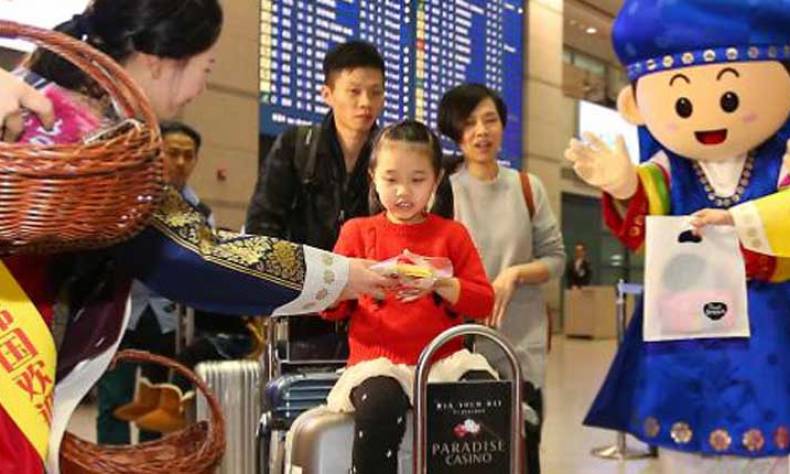
China and South Korea: Frenemies 4 Eva?
“A good many Chinese people enjoy eating fried chicken with beer, while a number of South Koreans are big fans of mutton,” said South Korean President Park Geun-hye in Shanghai on September 4, hinting at the cultural – and culinary – influences each country has on the other. At least on the Chinese side of the Yellow Sea, the influence is great, with many Chinese people seemingly obsessed with South Korean culture.
South Korean restaurants that feature samgyeobsal (barbecued pork belly) and bibimbap (rice mixed with vegetables, often served in a sizzling pot and topped with a fried egg) are a common sight throughout many Chinese cities, and training courses teaching how to cook South Korean dishes are becoming increasingly popular. Yet cuisine is only a small part of China’s infatuation with South Korean culture; from TV dramas to pop stars to cosmetics, many in China spend many of their waking moments trying to keep pace with South Korean culture.
President Park knows this, and she is attempting to capitalize on the situation.
After attending China’s September 3 Victory Day Parade, the South Korean president took part in a forum promoting Sino-Korean commercial cooperation in Shanghai the following day, the result of the meeting dozens of cooperative agreements forged between Chinese and South Korean companies, mainly focusing on the apparel and medical tourism industries.
Moreover, the recent South Korean hit movie Assassination is set to premiere across Chinese cinemas in mid-September, only two months after its debut in South Korea. The film, set in the 1930s, tells the story of a group of South Korean spies and their attempt to assassinate a Japanese commander in Shanghai at a time when the Korean peninsula was under Japanese occupation and the Korean government in exile. The movie is said to signal the increasingly warming relations between Beijing and Seoul due to certain political themes.
What makes Assassination so special is its history. In the movie, the assassins were appointed by the Shanghai-based interim government of the Republic of Korea, a government-in-exile established in Shanghai in 1919 after Japan annexed the Korean Peninsula. The South Korean national independence movement was founded after the interim government joined WWII and contributed to the defeat of the Axis powers.
On September 4, the original offices of the interim government were opened to the public for the first time, with President Park attending the ceremony in Shanghai. It is easy to see from recent events Park’s strategy of increased engagement with China.
South Korea’s move towards China is a tactic that will have lasting effects for the two Asian powers. By strengthening her political clout in Northeast Asia, Park has the backbone to push back against North Korea and Japan so to soften their hawkish stances. North Korea, in particular, is considered her main concern and by approaching China Park is able to voice her concerns with more of an ear. Park Geun-hye has been commended for her ability to maintain healthy relations with both China and traditional ally the U.S. Park will meet President Barack Obama in Washington in November.
But the question remains: will Chinese people warm to and embrace their eastern neighbors and vice versa. According to a 2015 survey by South Korea’s Chosun Ilbo, only 23.1 percent of South Koreans view Chinese people favorably, down from 39.3 percent in 2005. In another survey by the JoongAng Ilbo in 2013, Chinese people gave South Korean a 53 percent favorability rating, hinting at perhaps a warmer opinion in China.
Neither of the two ratings are particularly positive, however, and such figures seem to accurately represent the pervading sentiment among Chinese netizens. On Sina Weibo, a popular micro-blogging platform, netizens often unleash torrents of verbiage at South Korean celebrities and South Korean expats, South Korean students at Chinese universities a common target. It is not difficult to find comments describing South Koreans as “noisy and self-centered,” which, funnily enough, are common criticisms made by South Koreans about Chinese people.
It is inspiring to see China and South Korea, two countries of hugely similar cultural appearances, stand closer together, but the precondition for their warming relations is this: resolve any mutual misunderstandings and bring the two peoples together.
 Facebook
Facebook
 Twitter
Twitter
 Linkedin
Linkedin
 Google +
Google +











Comments are closed.